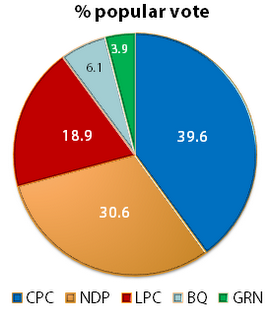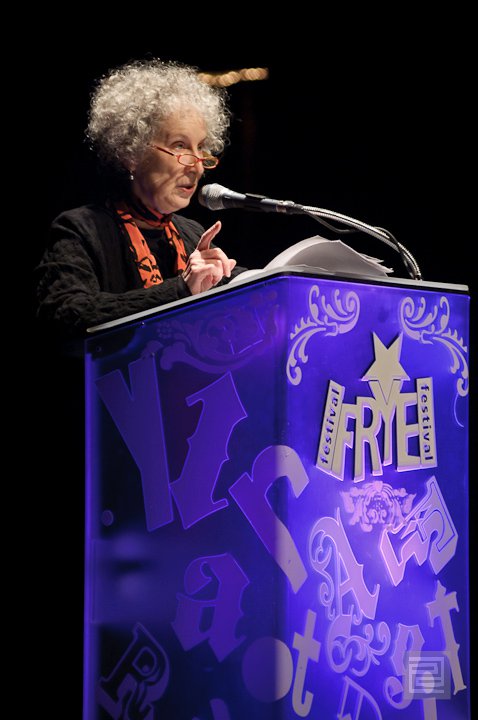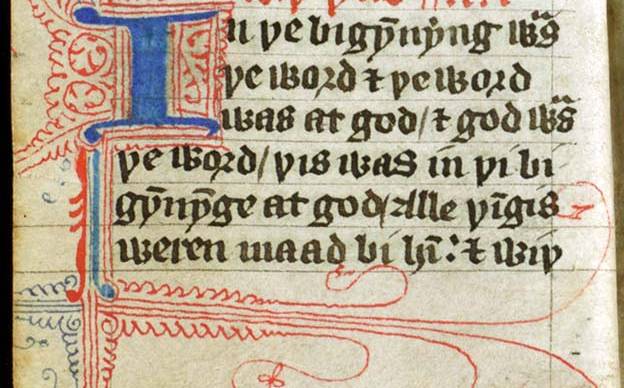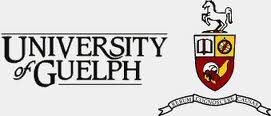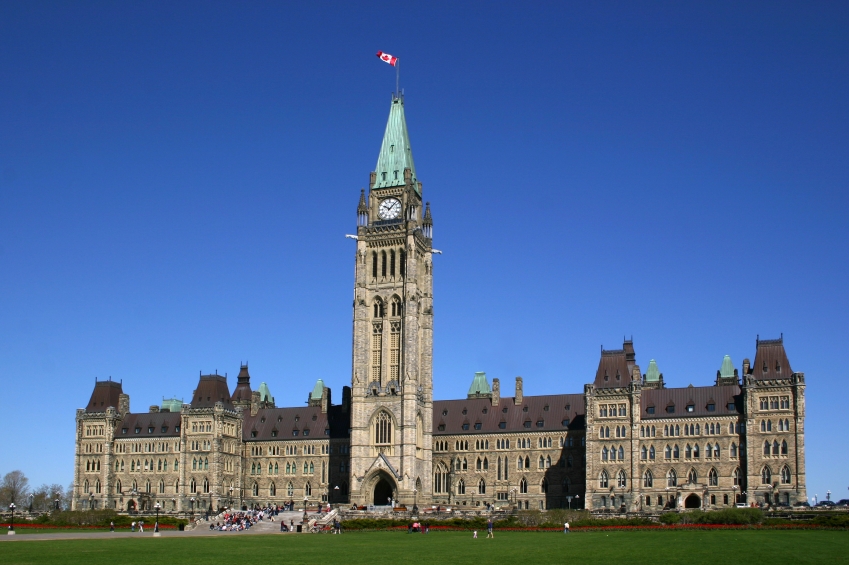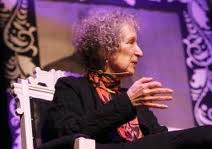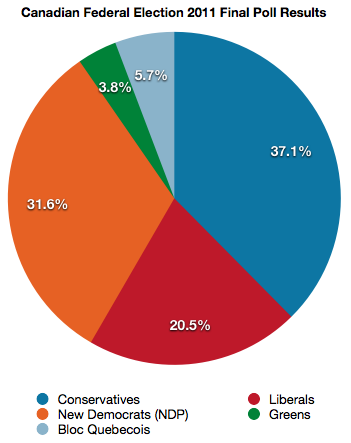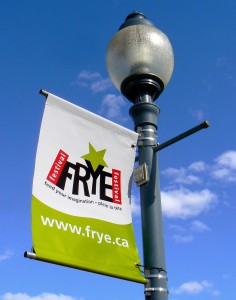Atwood at the Capitol Theatre, Moncton, Thursday night (photo, Times-Transcript)
I love this story which I picked up this morning through the Globe & Mail, about a man named Sohaib Athar, a resident of Abbottabad, Pakistan, who inadvertently tweeted the raid on Osama Bin Laden’s compound as it unfolded. What follows are the exact words of the article, with a few sentences omitted for brevity. It all leads to an amazing last sentence. We’re all one big human race, that sentence tells us.
His first tweet was innocuous: “Helicopter hovering above Abbottabad at 1AM (is a rare event).”
As the operation to kill Osama Bin Laden unfolded, Mr. Athar “liveblogged” what he was hearing in real time, describing windows rattling as bombs exploded.
He questioned whose helicopters might be flying overhead. “The few people online at this time of the night are saying one of the copters was not Pakistani,” he tweeted.
Mr. Athar then said one of the aircraft appeared to have been shot down. Two more helicopters rushed in, he reported..
Throughout the battle, he related the rumours swirling through town: it was a training accident. Somebody was killed.. The aircraft might be a drone. The army was conducting door-to-door searches in the surrounding area. The sound of an airplane could be heard overhead.
Mr. Athar did not respond to media requests for comment — he explained in another tweet that a filter he set up to stop his email box from flooding could be culling out requests for interviews.
Soon, however, the rumbling of international events far beyond the confines of this quiet upscale suburb began to dawn on Mr. Athar, and he realized what he might be witnessing.
“I think the helicopter crash in Abbottabad, Pakistan and the President Obama breaking news address are connected,” he tweeted.
Eight hours and about 35 tweets later, the confirmation came: “Osama Bin Laden killed in Abbottabad, Pakistan,” Mr. Athar reported. “There goes the neighbourhood.”
The Frye Festival, at least for organizers, always has a sense of let-down when it’s over, like postpartum depression I suppose. We wish it didn’t have to end and we didn’t have to return to the real world. This year, with the election and Bin Laden’s death all happening the day after the festival, there’s even more a sense that what we’ve created is slipping fast into memory. Maybe, though, at the end of the day it will not be a down feeling, but joy as the results come in. We can always hope, prematurely or not.
As we fully expected, the festival ended with a bang, with Margaret Atwood’s lecture Saturday evening, followed by a Q & A Session that lasted 40 minutes, instead of the allotted 20. The Capitol Theatre was filled to capacity, a little worried because she was AWOL until the last moment, returning from a trip to Sackville, where her grandmother had attended university. Her talk was entitled “Mythology and Me: The Late 1950s at Victoria College.” She was thoroughly entertaining (local CBC reporter Bob Mersereau blogged her as the best stand-up comic he’s seen in a long time) and richly informative about her own life, her years at U of T, her interactions with Frye as well as McLuhan, and her reading of Frye’s Anatomy, Educated Imagination, and Great Code. She read a long and irreverent piece she had written under the nom de plume ‘Shakesbeat Latweed’ while at Victoria College, making fun of the ideas of both Frye and McLuhan. She analyzed the ‘poetry’ of advertising spots for Coke, Pepsi, and other products of the 40s and 50s, making the (tongue in cheek) case that in the days when everyone was lamenting the aridity of the Canadian literary scene, here, right under our noses, a great oral tradition, calling for its own horde of specialists, was unfolding via the new media, radio and television. There was much on myth, not meaning true or false, as she tried continuously to emphasize, but story, and her presentation of the Great Code in a nutshell was a tour de force. As Rhonda Whittaker, host and interviewer, said afterward, “I think everyone was surprised by how wry and witty she was.” Even when we were not surprised we laughed a lot. After the talk and after the Q & A, she sat at a table on stage and signed books, generously greeting everyone in a long line of at least 250 people. The talk, by the way, should be available as an e-book sometime in the fall.
Saturday was jam-packed with other activities, many of them focused on children, including Kidsfest in the morning, which attracted several hundred kids and parents. There were writing workshops for kids and an event called ‘Budding Writers’ where students in grade 5 to 8 read their own works. A Brunch & Books event with Fereshteh Molavi, Melvin Gallant, Shandi Mitchell, and Hélène Vachon was a quiet oasis for lovers of the written word. The final event of the festival, called Frye Jam, brought together 7 authors, French and English, as well as several musical guests, for a late night celebration of words and music. A tough crowd sometimes, for the authors, with some people doing more talking than listening, but Mark Anthony Jarman found an answer when he pulled his harmonica out of his pocket toward the end of his reading and fronted our favourite local band, Les Païens. And with skill, as his CV had forewarned us.
I’ve left Friday out of my account, but it’s getting late and the election results are beginning to come in. As a purely (or not so purely) English speaker at a bilingual festival, it was a pleasure for me to meet Prix Goncourt winner, medical doctor, and ambassador (among many other things) Jean-Christophe Rufin. Friday evening Rufin engaged in a one-hour conversation with host Jean Fugère, which kept the crowd of 150 in absolute thrall. Rufin also took part in a noontime roundtable on “Writers as Readers” along with Fereshteh Molavi, Mark Anthony Jarman, and Hélène Vachon. Friday afternoon belonged to Sylvia Tyson. A well-attended ‘Book Club’ event featured a discussion of her new novel, “Joyner’s Dream,” with Sylvia answering all our questions. Two hours later she was part of a ‘Beer and Books’ event that ended with Sylvia reading extensively from her novel and, to conclude her reading, she performed one of the songs she had written as integral to the novel. As I said to someone leaving the venue, “It was worth the wait!”
